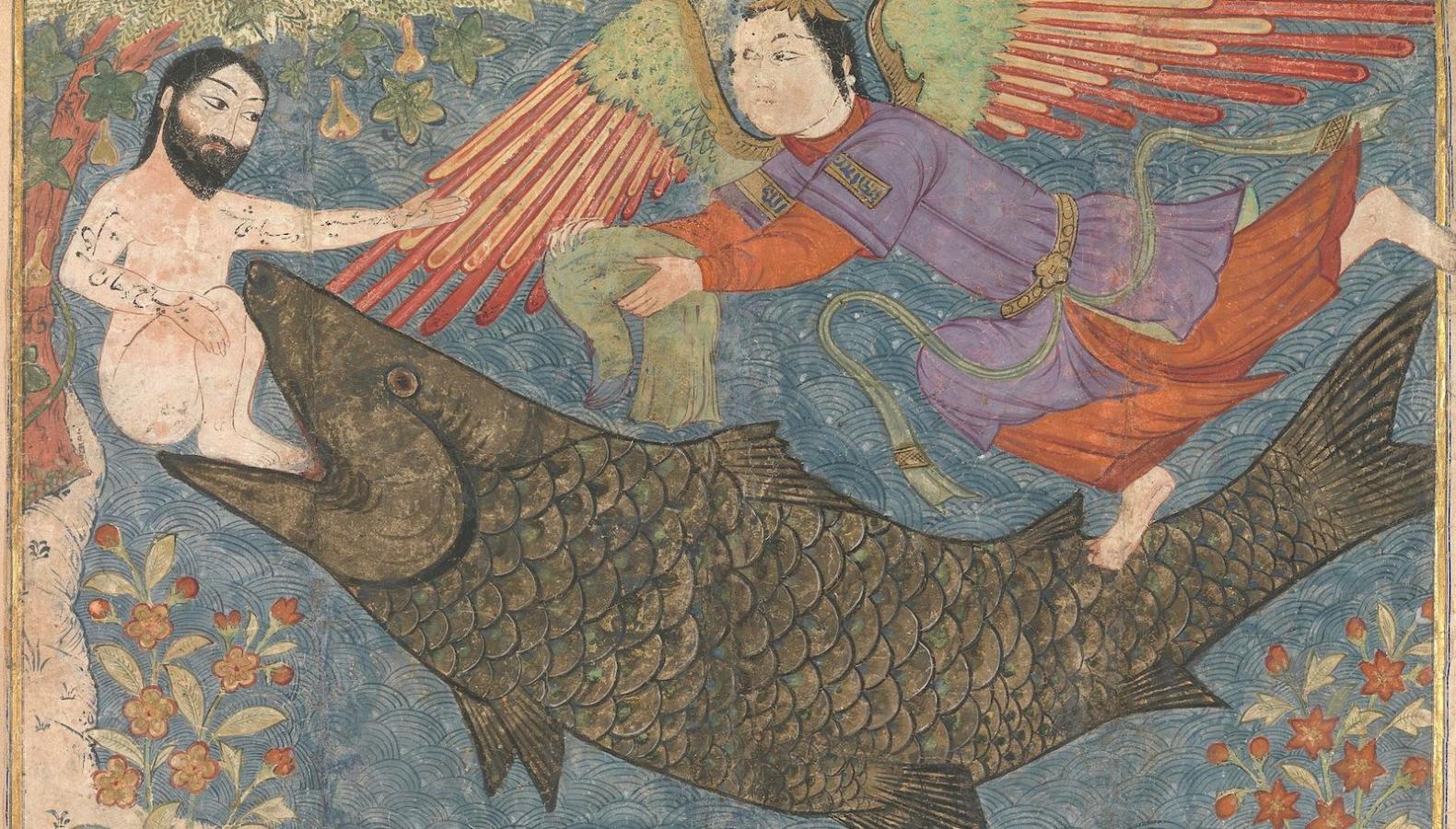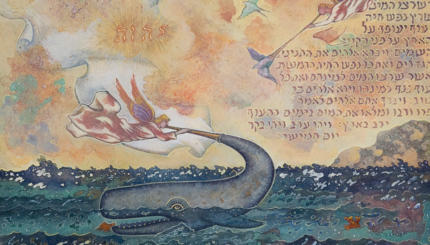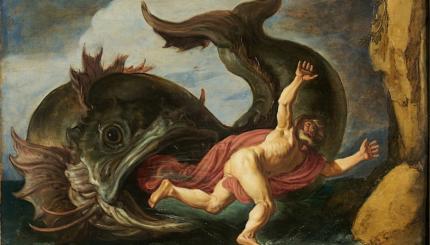The Jewish sages have given four predominant answers to the question of why we read Jonah on Yom Kippur.
The first is that the book reminds us of God’s infinite mercy. S.Y. Agnon, in his work Days of Awe, quotes the a Midrash, which says: “Israel said to God, ‘Master of the Universe, if we repent, will you accept it?’ God responded, ‘Would I accept the repentance of the people of Ninveh, and not yours?'” We read Jonah to be reminded that if God could forgive Ninveh, of course God can forgive us.
Read the full text of the Book of Jonah in Hebrew and English here.
The second rabbinic response is related to ’s most profound theme: teshuva, or repentance. The second Mishnah in Ta’anit, which recounts how the Jewish people should observe fast days, quotes the deeds of the people of Ninveh. They are a paradigm of repentance, a model for us as we struggle through the day.

Help us keep Jewish knowledge accessible to millions of people around the world.
Your donation to My Jewish Learning fuels endless journeys of Jewish discovery. With your help, My Jewish Learning can continue to provide nonstop opportunities for learning, connection and growth.
Third, the Book of Jonah serves as a reminder that the entire world, and all of its natural forces, are in God’s hands. The wind, the kikayon plant, the sea, and the great fish are all vehicles of God in this story. These all serve to reinforce the statement in Psalm 24, which we read on Kol Nidrei night, which states that “The earth is God’s.”
Finally, according to the in Brachot 6a, the time of the afternoon Mincha service is believed to be especially poignant for having prayers answered: “One should always take special care about the afternoon prayer. For even Elijah was favorably heard only while offering his afternoon prayer.” As we read of Jonah being answered from the belly of the fish, we are reminded that we too can be saved, even as the day begins to wane.
Book of Contradictions
But there is something more at play in this little book, which, though only 47 verses long, mentions the word “big” 14 times. It is a book of contradictions, which ends in an unanswered question. In her work The Murmuring Deep: Reflections on the Biblical Unconscious, Avivah Gottlieb Zornberg writes, “The book of Jonah invites interpretation from the first verse to the last; but its elusive meanings are never fully netted. There is no conclusive answer to its questions.”
Who is Jonah? The sages disagree. When was this book written, and by whom? Again, disagreement. Did the first two chapters really happen? “There are those who say that it all happened in reality, and those that say that it all occurred in a dream, and in a prophetic vision,” writes Rabbi Yosef Kaspi on the book’s first verse.
There is constant tension in the book: between the cities Ninveh and Tarshish, the land and the sea, sleep and wakefulness, up and down, an embracing of God and an evasion of God, an embracing of mission and an evasion of mission, good and bad, compassion and detestation, desire for mercy, desire for truth, Jews and non-Jews.
We read this book as we attempt to stand before God in the hours before Yom Kippur concludes. The majesty of the Kol Nidrei prayer has long passed. The possibility of the dawn and its prayers are gone. The elation of the Mussaf service is behind us, and we are at our thirstiest, our hungriest. We may wish to simply lay down low and sleep — far away from the oppressive synagogue; far away from our oppressive selves, from our contradictions, our conflicts, our limited possibilities, our limitless desires.
We Are Jonah
At this point in the Yom Kippur journey, we are all Jonah. The task is too great, too daunting. We want, simply, to have a sip of water, to sit in the shade, to be undisturbed. And yet we know that Yom Kippur is coming to a close, that the gates will soon be shut, and there is some internal yearning within us, some unquenchable desire to achieve what we dream for ourselves, to rise to the challenges put before us.
We read Jonah during the service because we are Jonah at this point in the day. We have been functioning in the realm of belief that our prayers will lead to certain outcomes; that is, after all, the purpose of Yom Kippur. And yet, deep within us, in the desire to return home to sleep in our beds, there is the doubt, the anger, the knowledge that we can never understand how this world works, and what is the point in trying? We read Jonah to be reminded that this tumultuous, contradictory, difficult space is, in fact, the space of prayer and possibility.
Zornberg writes, “The enigmas that enrage and sadden Jonah are not riddles to be solved. They remain; God invites Jonah to bear them, even to deepen them, and to allow new perceptions to emerge unbidden. In a word, to stand and pray.”
And so we, Jonah-like, enter the synagogue as he entered the fish, and as we stand in the dark, unseeing, we call out to our Creator. We do not answer these riddles; rather, we immerse ourselves in them and let them take us over.



